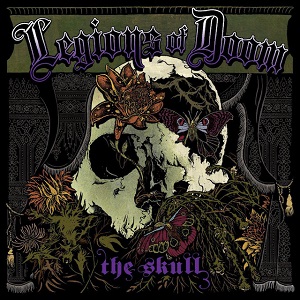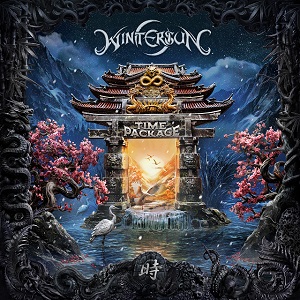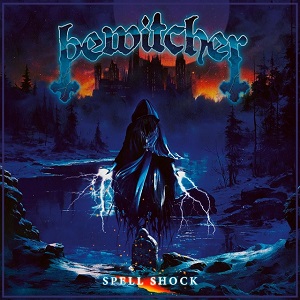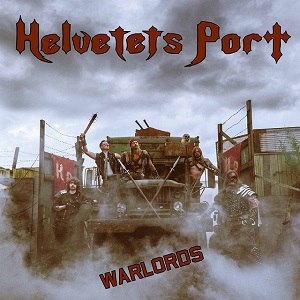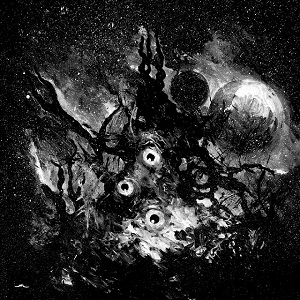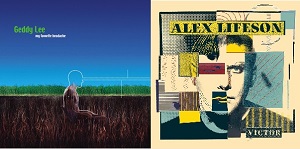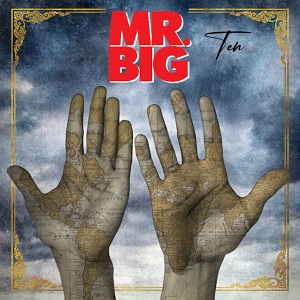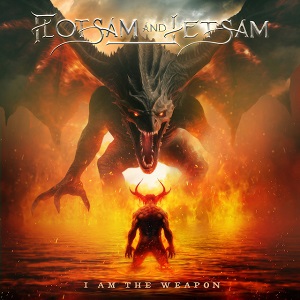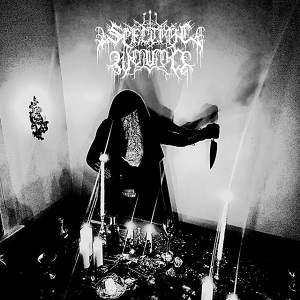Rolling Stone Speaks To METALLICA - Q&A Chats With Entire Band Available
September 17, 2008, 16 years ago
Rolling Stone has extensive coverage of METALLICA's new album Death Magnetic, including four Q&A; interviews with all members. Excerpts from each chat follow:
James Hetfield
Rolling Stone: You have been in Metallica for your entire adult life. Have you ever felt restricted?
James Hetfield: "I made myself feel restricted: "I'm tired of arguing. I'm not gonna argue for another five hours about something little and stupid. You win. This is Lars' band. When I'm able to be me, it'll be the side project, the solo thing." Which is just ridiculous. Every band that I've known that has done side projects or things like that — I don't respect them anymore."
Rolling Stone: There are very strict parameters to life in Metallica. It's like joining the Army.
James Hetfield: "The metal militia, dude! We've all discovered there is freedom through structure. There has to be some structure in my life, at least. I think Lars has discovered that a lot. You could look at Jason [Newsted] as the sacrificial lamb. I didn't want him doing 12 side projects: "You're in Metallica." But it was so unconnected when he left [in 2001], so compartmentalized. But now, Metallica is the four of us. This is our solo project. This is the best way to get our emotions and feelings out and touch people."
Rolling Stone: Was there a clear leader in the beginning? You or Lars?
James Hetfield: "There were leaders in different ways. There's no doubt Lars was the spearhead of wanting to get a band together. But I was the same, and we joined forces. Lars had the name. I had the logo. He was more the business guy, the thinker. I'm much less of a thinker. And there was his personality, the only child growing up in a pretty well-off family."
Read more with James here.
Lars Ulrich
Rolling Stone: In the beginning, what was your definition of success? What kind of fame did you want?
Lars Ulrich: "There was never a discussion about it. It was obvious there were two paths. You become or want to become Led Zeppelin, Kiss, etc. Larger than life. Mystery. No pictures on the records. Or you do feet on the ground, access, reaching out, inviting people in. It was pretty clear early on that we were going this way, with the access. Be part of it. You're welcome. This is who we are, for better or worse, warts and all. We're going to feed off your energy, that relationship."
Rolling Stone: What was the lowest point for you, financially, in the band's early days?
Lars Ulrich: "I'll tell you exactly when it was. Kill 'Em All came out in August of '83. We did the tour. And the thing about being on tour back then was, you got your per diem, just enough money to scrape by. When we came off the Kill 'Em All tour, we had nothing. For the first time in a year, I had to call my mom up: 'Listen, Mom, I need some help. Can you help me with the rent? Can you help me with some food money?' It was all about hook up some dates, get us back on tour. Because on tour, you could go to people's houses. You could eat crap backstage. When you're on tour, you're surviving. When you were at home, fuck . . . It was tuna in cans."
Rolling Stone: People forget that to get to this level — the planes and champagne — you gotta start low.
Lars Ulrich: "That's the thing that was weird about the whole Napster thing. [In 2000, Metallica sued the file-sharing Website for sharing the band's copyrighted recordings online for free without the band's permission.] Nine out of 10 people go, "What was that about? It was about money." Fuck you — it wasn't about money. It was about control. We were eating off salad plates for $2.99 at Burger King in the fall of '83. Money did not matter. Money was a practical element. There was no attachment to it. In 2008, it's not something we sit around and have long conversations about. It's not like, "What's in the bank? How much are we making?" I have no emotional connection to money. And somehow I became the greedy Danish drummer, because of this Napster thing. Give away stuff for free? Not a problem. The Internet? Not a problem. [Metallica sells complete downloads of recent shows at their Website and offers almost two dozen classic concerts from their soundboard archive for free.] Who makes the decision? We make the decision. I'll give away all my shit for free. But I'll decide when and where and how."
Read more with Lars here.
Kirk Hammett
Rolling Stone: Was there a point when you realized you were a rock star?
Kirk Hammett: "It was probably the "Black Album" tour, when thing started to get really crazy. We would go to social events, and Ozzy would come up to us — "Hello!" Or we'd get a message — "Tony Iommi is here. He wants to say hello." If our heroes, the people we were so inspired by, are interested in us now, we might have crossed a line somewhere. We had reached a level, in musicianship, in respectability. It was a powerful feeling."
Rolling Stone: Did it also make you realize that your friend was right — rock stars are normal too?
Kirk Hammett: "There came a time when you started feeling comfortable with them, and realizing, yeah, they have the same mechanics as every other human being in the world. Just because they played that fantastic guitar solo in 1978 does not make them non-human. I hope that carries on to people when they meet me. I'm always uncomfortable when people start bowing. I'm waiting to shake their hand, and they do that. Just shake my hand! [Laughs]"
Rolling Stone: How much do you think you need to be in Metallica — that there is nothing else you can or want to do? During the making of St. Anger, when it was clear the engine was not turning over, were you able to accept the fact that nothing lasts forever?
Kirk Hammett: "Honestly, I was ready to start working on a solo album. I had a bunch of music I was sitting on. I was going to ask Lars to play drums on it. But to get to the real meat of the question..."
Read more with Kirk here.
Robert Trujillo
Rolling Stone: You joined Metallica in February, 2003. How much did you know about the dynamics within the band at the time?
Robert Trujillo: "They were in the middle of a bunch of transitional things. They were recording the album [St. Anger], still doing tracking and mixing, and also trying to find a new bass player. I received a phone call. I was in Tahiti on vacation. I checked my voice mail, and I had Lars and Kirk on there. Lars was in the background: "Join our band!" They were probably out on the town, having a few cocktails, calling all the bass players on their list."
Rolling Stone: Do you know how you got on that list?
Robert Trujillo: "I'm not 100 percent sure. I think it was a combination of things. One was I toured with Metallica, with Suicidal Tendencies. That's where I originally met everybody. And less than a year prior to me receiving the call, a mutual friend of Kirk's called and said, "Kirk and I are coming down with some friends. Can you show us some surf spots around L.A.?" I thought that was neat: that Kirk, the vampire I knew, the nocturnal man, was ready to explore daylight and surfing in Southern California. He was in an RV with three friends. We spent a weekend hitting different spots. The whole thing, at least from what I understand, was they each had people they wanted to bring into the auditions. I became Kirk's guy. From my understanding, Lars wasn't aware of much that I had done. [In addition to playing with Suicidal Tendencies, Trujillo toured and recorded with Ozzy Osbourne and worked with Alice in Chains guitarist Jerry Cantrell.] I don't know where James' head was at."
Rolling Stone: What was the audition like?
Robert Trujillo: "This was 2002, somewhere around December. I was going to San Francisco for a birthday party. They got word I was going to be in town: 'Well, come on over to the studio, we'll hang out.' We're talking zero time to learn songs. I'm going north to play with the coolest band in rock, and I don't have time to do anything. I did the best I could. I pulled a few songs together, not knowing what they were going to play."
Read more with Robert here.


